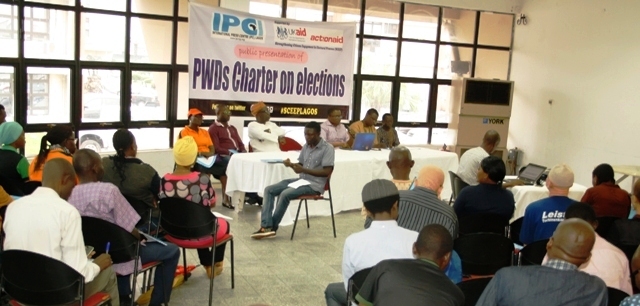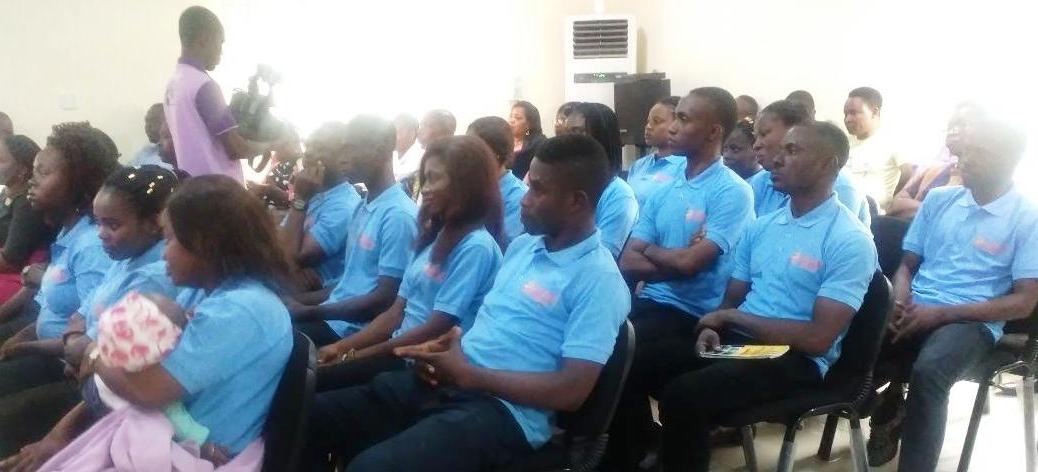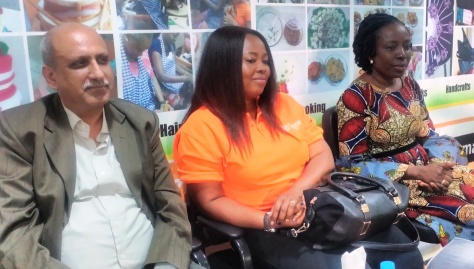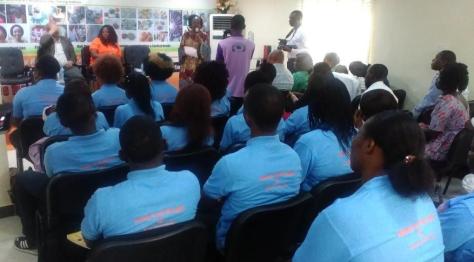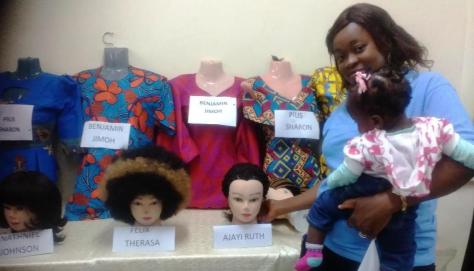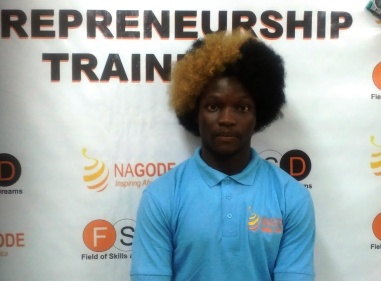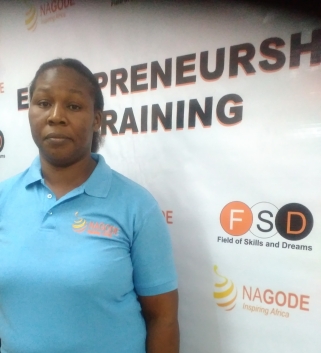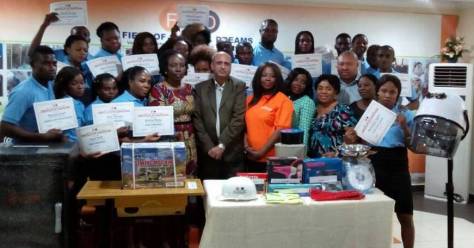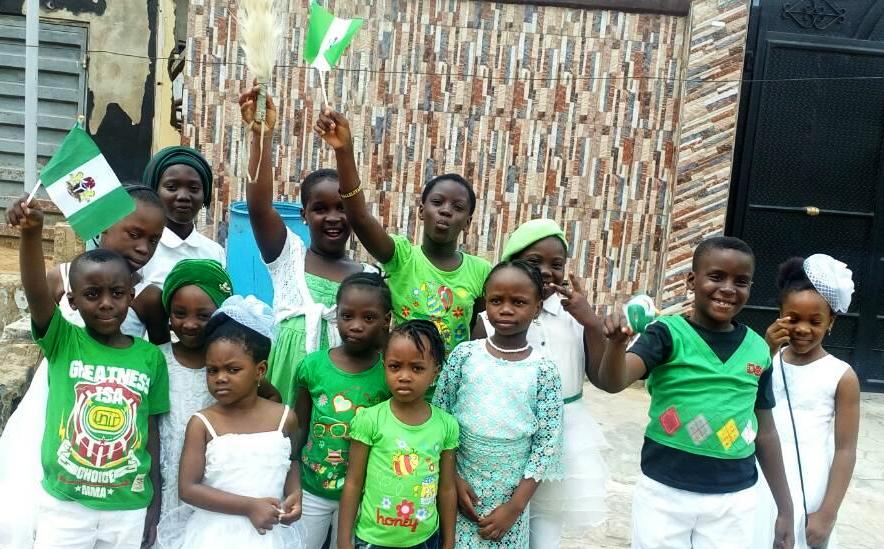= By Funmi Falobi =
There is no gainsaying that People With Disabilities (PWDs) suffer discrimination and are often marginalized in the society. Numbering about 25 million, PWDs represents a significant portion of the electorates that cannot be wished away.
As the build up to the 2019 elections in Nigeria garner steam, it becomes imperative to ensure that those in authorities pay attention to the needs of these people so as not to deny them of their rights before, during and after elections as available statistics infers that these groups of people are have been marginalized and remain marginalized from exercising their rights of voting and being voted for.
Hence, premised on emerging issues on the need to advance the rights of People With Disabilities (PWDs) to actively participate in elections and positively engage the electoral process, the International Press Centre (IPC) held a one-day forum and public presentation of a draft document of “PWDs Charter on Elections in Nigeria”. The programme, which held at Ikeja, Lagos State is part of activities being funded under the Strengthening Citizens Engagement in Electoral Process (SCEEP) project, being implemented in Lagos by IPC and supported by ACTIONAID Nigeria and the UKAID through the Department for International Development (DFID).
Presenting an overview of challenges affecting PWDs participation in elections, Dr. Dele Seteolu, Department of Political Science, Lagos State University (LASU) outlined the challenges of PWDs as captured in the charter under five PWDs cluster groups – women with disability, people with physical challenges, people with albinism, people with visual impairment, persons with hearing impairment and people with leprosy cases.
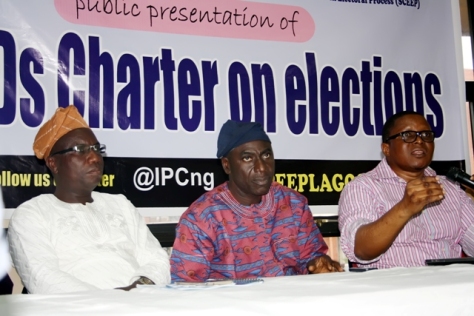 According to him, most women with disability (WWD) face extreme difficulties that did not necessarily result in obtaining their voters cards such as passing through long queues and going back and forth for several weeks before acquiring voter’s cards, the non-recognition of their disability conditions by Independent National Electoral Commission, INEC officials during the voting process and the frequent breakout of sporadic violence.
According to him, most women with disability (WWD) face extreme difficulties that did not necessarily result in obtaining their voters cards such as passing through long queues and going back and forth for several weeks before acquiring voter’s cards, the non-recognition of their disability conditions by Independent National Electoral Commission, INEC officials during the voting process and the frequent breakout of sporadic violence.
“Political parties have traditionally marginalized women in Nigeria, which discourages WWD from attempting to participate in them. Therefore, they prefer to confine their roles to voting at election, which has unfortunately remained a source of relative deprivation in Nigeria,” he said.
He explained that political parties did not fulfill their campaign promises, particularly of presenting some PWDs for elections. On the other hand, People With Albinism (PWAs) have been dissatisfied with the ways elections have been used to disenfranchise members of their cluster in Nigeria. Using the 2015 general elections as benchmark, some of the PWDs in this cluster acknowledged that though it “was fair and peaceful on a general note,” most of them could not exercise their rights to vote immediately on arrival as earlier promised. Also, most of them were frustrated that the available materials for voter “information and education” were usually not presented in colours that they could easily comprehend.
People with Visual Impairment (VIs) confirmed that some of their voters’ cards were stamped. However, special queues were not formed for this PWD cluster in spite of the fact that they were a people “who could not see.”
In addition to that, brailed ballot papers were not available for them to make independent choices of candidates they wished to vote at the elections. Moreover, INEC officials at the Polling Stations (PSs) practically prevented the trusted guides that brought them from assisting them to cast their votes. Instead, the INEC officials “assigned members of the security forces, whom they did not trust, to guide them to cast their votes. In other words, they were denied the secret ballot quality of the voting process and they were not listened to “when they needed INEC officials’ attention”.
Also, despite repeated pleas, “INEC and the political parties did not provide written or other forms of necessary information for People with Visual Impairment (VIs) to have access to voting materials”. For instance, there was “no advertisement … on the available media about political activities for the generality of PWDs.
While there was unrestrained “stigmatization” which made it extremely difficult for people with leprosy to form a queue during elections, it was evident that INEC did not expect this cluster to participate in the elections because “no specialist was provided to meet our exceptional needs.” Thus, they were unable to register as voters “since the card readers could not capture fingertips” while neither INEC and the political parties bothered about the situation.
Similarly, INEC has consistently failed to provide a key means of communication with people with hearing impairment, PWHI, during elections in Nigeria.
As a way forward, Seteolu noted that it was imperative for inclusion of PWDs in the electoral process. According to him, Independent National Electoral Commission, INEC, should employ qualified PWDs and saddle them with the tasks of ensuring the participation of this constituency in the political processes and in electoral preparatory process. They could also serve as election observers and be involved in the mobilization of PWDs to participate in elections.
Also, INEC and the political parties should develop clear and simplified voting guidelines for PWDs: braille for the visually impaired, audios for the blind and television-based sign language for the deaf. PWDs should be engaged to perform these roles.
Similarly, INEC should ensure that polling stations are visible and accessible to all PWDs.
INEC should endeavor to make the voting process easier by sorting out their logistics issues to ensure prompt arrival to the polling stations with voting materials on election days.
INEC should, before the elections, sensitize its staff that they will encounter PWD and prepare them for the type of voting-related challenges they might have to help them surmount. There are skilled PWDs that INEC could use as facilitators for such sensitization.
Political Parties should ensure that PWDs are appointed into their administrative structures and offered opportunities to contest and be voted for on their platforms.
Political parties should include members of all PWD clusters in their campaign teams for elections, security agencies should ensure the protection of voters at polling stations, especially for PWDs; security agencies should not allow themselves to be used to harass and intimidate PWDs, among others.
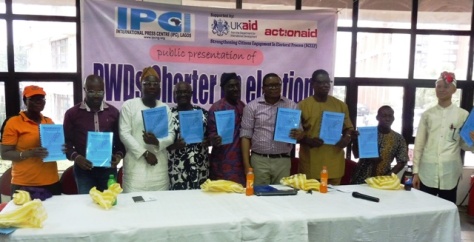
A representative of the PWDs, Mrs. Adedoyin Beyioku-Alase, Founder/National President, Deaf Women Association of Nigeria, said there is need for INEC to provide interpreter for PWHI in order to exercise their rights. “All what the doctor said is true. We want our leaders to hear, when there is violence, we will be the last to hear, when people are shouting, running at polling booths.
“We want to vote and be voted for. There should be provision of interpreter for us by INEC. Disability is not the problem but for the society to accept us and provide our needs,” she said.
On his part, Mr. Lanre Arogundade, Director, IPC, said, “the demand is beyond the media, we should tell the political parties to include these demands. They should employ PWDs as their agents.”
He declared that SCEEP has helped communities in Lagos State and also working with women to enlighten them on how they can emerge political candidates.
INEC representative, Mr. Olufemi Akinbiyi said people with disabilities are key to the success of INEC activities given their population of close to 25 million people. He noted that for PWDs to explore their importance and to demand their rights from the politicians, the first and the most significant step to take was to undergo voter registration. He therefore urged people with disabilities to register and vote people they can trust. He added that priority voting for PWDs has been introduced during elections to ensure that PWDs are assisted to easily vote during elections.
“2019 election will be a greater improvement as PWD is concern. We have our master plan for 2019 election and we will ensure some of these demands are included. Some of the policies will have to get National Assembly endorsement,” he said.
National Orientation Agency, NOA, Lagos Director, Mr. Waheed Ishola expressed his organization’s readiness to support PWDs and other stakeholders to make sure their rights were not infringed upon. In his words, “the National Orientation Agency is your friend and will link you up with other government agencies. Just make sure you put yourselves together with one voice and not be fragmented”.
Commenting on the PWDs charter, he said the PWDs charter on elections would ensure that government reckons with and provides good environment that would drive their demands. He also noted that disability was not the end of any person, urged PWDs to get registered so that they could have a say during election, using their strength and numbers. He thereby encouraged them to not just vote for people they can trust, but also aspire for any political position of their choice.

